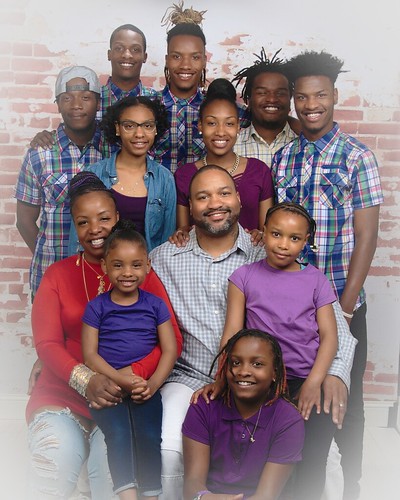Nominated by Robert Birchmeyer
Q: How did it feel when you became a father?
A: I don’t know if most fathers feel it. It was a rebirth. A new feeling for me. With my first born, I was still young. I had to straighten up. Every smile, every tear was like, ‘Thank you for being here,’ moving me in the right direction and being worthy. My second child was a gift to my first one. I wanted him to have someone to play with because he deserves someone to play with. For me as a father, he was another chance for me to affect the world.

Q: What was your relationship like with your father?
A: My mother left my father to have a better life. She came here to Syracuse to be with her father as he was getting older. I talked to him on the phone a few times and understood that I had a father. Not until I was back in Syracuse, out of the military, that I got to know him. We went to visit a few times when I was younger. They were always good experiences. But I didn’t get a chance to learn fathering from him.
Q: Why are fathers important?
A: I know the stories I heard about my dad’s wrongdoings, which guided me to do better. You have this remarkable ability to make mistakes and grow. Patience is one of the best skills a father can have. One thing that helps children is when their father loves their mother. You don’t have to be with her to show her love. It’s when you don’t get along and you show her love that builds better children. When people don’t agree, there’s still love. When people are mad or unhappy, love is still beautiful. Love endures.
Q: How can fathers break through the “tough guy” culture?
A: A father can show his child weakness. I know a lot of fathers never show their children, especially their sons, that they’re hurt. They look at love as being soft and nurturing, and so they look at it as being a woman’s thing. No. Showing vulnerabilities can be helpful. No need to hold it in. Showing them emotion helps them grow.
Q: What advice do you give your kids?
A: Don’t do anything where you look in the mirror and were ashamed of the person you see. Don’t be offended by what looks back at you. Have faith in yourself that the decisions you make may not always work out now, but that they are on the road to working out. It’s OK to fall. It’s not OK to not get up. Pick yourself up and keep moving.
Q: With 10 children, how do you find balance?
A: I learned from being in the military that if you don’t take care of your family, you won’t have a family to take care of. I was in the military from 1995-2000, active, and from 2000-03, reserve and inactive. I realized if I didn’t sacrifice income for family, I’d have a lot of money for medical bills, counseling and I’d be lonely. So I’ve left a few jobs because I needed to take care of my home life. I worked at some restaurants, and they wanted me to work on Thanksgiving. I told them in January, I need this Thanksgiving off for my family. Even if it meant they fired me. It was the right thing to do.
Q: Final thoughts?
A: Erase the roles. At the Brady Faith Center, we teach young boys how to clean, cook, nurture and how to communicate. It’s important as a father to show children all of those things. Girls need to see that a man should be able to wash, cook, mop floors and not think that’s not for them. They need to know how to take care of themselves.
— Interview by Matthew Gutierrez, Staff Reporter
 The Stand
The Stand


